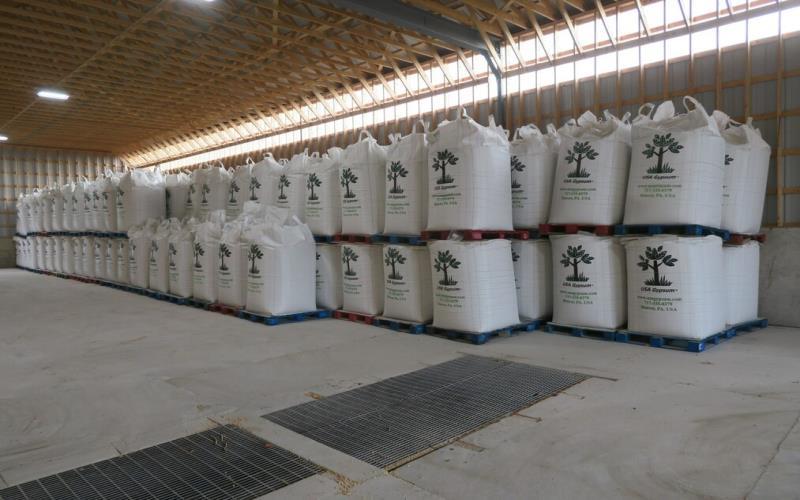Each year, businesses watch as 7.6 billion tons of industrial waste fill landfills worldwide, a staggering figure that’s hard to ignore. It’s a wake-up call, echoing the urgent need for change in our waste management practices. This is where the concept of Beneficial Reuse Management, a cornerstone of sustainable business practices, comes into play.
It’s not just about reducing waste, it’s about reimagining it as a resource, a transformative step towards environmental stewardship and economic efficiency.
As we delve into the art of Beneficial Reuse Management, we’re not just exploring a method, we’re uncovering a movement.
The Hidden Costs of Waste in Business
Every discarded item from a business becomes a missed opportunity. This is the reality for many companies unaware of the hidden costs associated with waste. From financial burdens to environmental tolls, the impact is far-reaching.
A study by the Environmental Protection Agency (EPA) revealed that in 2021, the U.S. generated 267.8 million tons of waste, a significant portion of which came from businesses.
This waste contributes to increased operational costs and a larger carbon footprint, a double-edged sword for any business.
The Environmental Impact of Business Waste
The repercussions of business waste on the environment are profound. According to the World Bank, global waste is expected to grow to 3.40 billion tons by 2050.
This escalation not only depletes natural resources but also exacerbates climate change. The methane emissions from landfills, for instance, are a significant contributor to global warming.
Businesses, therefore, play a crucial role in mitigating these impacts through responsible waste management.
The Social Dimension of Waste Management
Waste management isn’t just an environmental issue, it’s a social one too. Communities living near landfills often face health risks and reduced quality of life.
A report by the United Nations Environment Programme highlighted that improper waste disposal can lead to water contamination, air pollution, and soil degradation, directly affecting local communities.
This scenario underscores the need for businesses to adopt practices that are not only environmentally sound but socially responsible.
Beneficial Reuse: A Sustainable Solution
Beneficial Reuse Management steps in as a sustainable solution, turning waste into a resource. This approach involves repurposing waste materials in a way that benefits the environment and society.
For instance, repurposing construction debris into new building materials not only reduces landfill waste but also conserves natural resources. This method is gaining traction as a practical, eco-friendly alternative to traditional waste disposal.
The Economic Advantage of Beneficial Reuse
The economic benefits of beneficial reuse are equally compelling. Businesses adopting this approach often see a reduction in waste disposal costs.
A study by the Ellen MacArthur Foundation found that circular economy strategies, like beneficial reuse, could generate $4.5 trillion in economic benefits by 2030.
This approach not only cuts costs but also opens up new revenue streams, making it a win-win for businesses.
Overcoming Challenges in Implementing Beneficial Reuse
Adopting beneficial reuse is not without its challenges. Businesses often face logistical hurdles, lack of market for reused materials, and regulatory barriers.
However, with strategic planning and collaboration, these obstacles can be overcome. For instance, partnering with local recycling facilities and investing in waste sorting technologies can streamline the process.
Happen Ventures: Pioneering in Beneficial Reuse
Happen Ventures stands out in the realm of beneficial reuse. Their approach is not just about waste reduction, it’s about creating value from waste.
By offering services like prompt pick-up and committed customer support, they make it seamless for businesses to adopt beneficial reuse practices.
Their impact is evident in the substantial cost savings and positive environmental and social outcomes they’ve facilitated.
The Future of Waste Management and Sustainability
Looking ahead, the future of waste management is poised for transformation. Innovations in technology and a growing awareness of sustainability are driving this change.
Businesses that adopt beneficial reuse practices now will be at the forefront of this shift, leading the way towards a more sustainable and economically viable future.
Conclusion
Beneficial Reuse Management is more than a trend, it’s a necessary evolution in our approach to waste. By understanding its multifaceted benefits and overcoming the challenges in its implementation, businesses can play a pivotal role in shaping a sustainable future.
Happen Ventures exemplifies this approach, demonstrating how turning waste into worth can be both an environmentally sound and economically smart strategy.
As we move forward, it’s clear that the path to sustainability is paved with innovative solutions like beneficial reuse, a path that promises both environmental preservation and economic prosperity.

